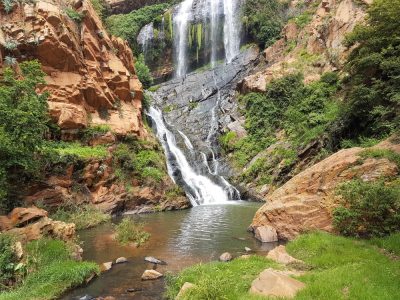The wealth of natural resources in some countries on the African continent represents an opportunity, but also a great risk of plundering for the sole benefit of large companies and an elite. All this is to the detriment of the population, with the danger of a social explosion. This is illustrated in the book by Léonce Ndikumana and James K. Boyce, “On the trail of Africa’s wealth”. Boyce’s book ‘On the trail of capital flight from Africa’.
Over the past 50 years, capital flight has cost sub-Saharan Africa more than $2 trillion. Over the past 20 years, this outflow has accelerated to an average of $65 billion per year. This amount is not compensated by annual official development assistance.

The natural resources of African countries (oil in Angola, cocoa in Côte d’Ivoire, minerals in South Africa, etc.), instead of representing national capital, follow the model of rapid extraction with offshore accumulation. Angola, which has seen more than $100 billion disappear in just over 30 years (the equivalent of its GDP in 2018), has not seen oil extraction relieve this haemorrhage. As this resource and the associated revenues only benefit large oil companies and a national elite, while almost half of the population does not have access to drinking water, social peace is threatened. The same is true in Côte d’Ivoire, where the majority of cocoa farmers are struggling to make a profit while capital flight has been estimated at $55 billion in almost 50 years.
Capital flight is a global phenomenon

The book “On the trail of capital flight in Africa” by Léonce Ndikumana and James K. Boyce, published by Oxford University Press, is a good example of how capital flight is a global phenomenon. Boyce (Oxford University Press) examines the dynamics of capital flight in three countries – Angola, Côte d’Ivoire and South Africa – that have experienced large-scale illicit financial outflows in recent decades. This quantitative, qualitative and institutional analysis of each country is used to examine the modus operandi of capital flight. The evidence reveals a complex network of actors and facilitators involved in orchestrating and facilitating capital flight and the accumulation of private wealth in secret offshore jurisdictions. This highlights the fact that capital flight is a global phenomenon and that measures to curb it are a shared responsibility of Africa and the international community. Tackling the problem of capital flight and related issues such as trade misinvoicing, money laundering, tax evasion and theft of public assets by political and economic elites will require national and global efforts with a high level of coordination.
On the Trail of Capital Flight from Africa, The Takers and the Enablers edited by Léonce Ndikumana and James K. Boyce
#Africa, #capital, #naturalresources, #Angola, #Côted’Ivoire, #SouthAfrica,









